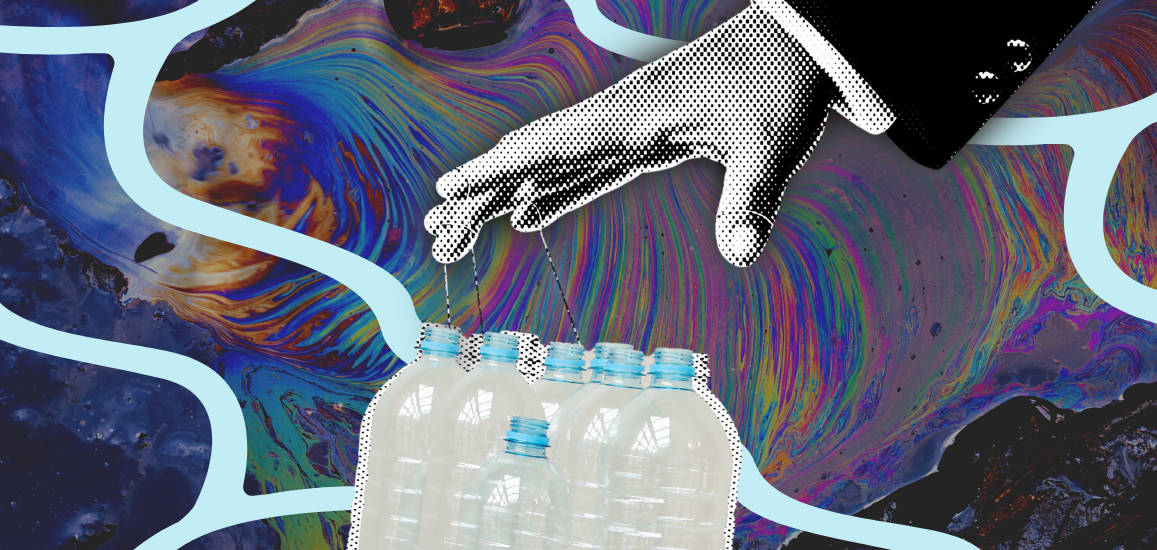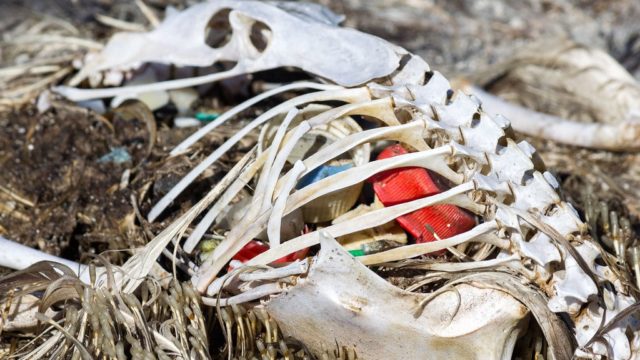On February 3, 2023, a train carrying hazardous materials derailed, creating an explosion in East Palestine, Ohio. The toxic leak and subsequent plume of chemicals — including cancer-causing vinyl chloride — forced the evacuation of around 2,000 residents.
The horror didn’t stop there. Following the explosion, residents reported migraines, rashes, and nausea, among other symptoms. Streams clogged with dead fish — in fact, an estimated 43,700 animals died.
For the people and wildlife of East Palestine, the long-term health impacts remain to be seen.
What’s this got to do with plastics regulation?
The train, operated by U.S. rail freight giant Norfolk Southern, was carrying toxic chemicals used to make plastic. Incidentally, that’s the same Norfolk Southern that lobbied against federal safety measures for the freight industry.
Those lobbying efforts were seemingly effective enough for the former Trump administration to have placed an old guard of the chemical industry1 in charge of the Environmental Protection Agency’s chemical safety office. Under their leadership, both rail and hazardous chemical safety regulations were rolled back.
Across borders, the plastics industry is notorious for lobbying against the government’s ability to regulate in the public interest. In fact industry, aka Big Plastic, is currently fighting Canada’s authority to regulate and curb plastics pollution. Thankfully, Ecojustice will be there in court this week to support Canada’s right to do just that.
Canada acts on plastic pollution
In 2021, Canada declared plastics toxic under Schedule 1 of the Canadian Environmental Protection Act (CEPA) — Canada’s cornerstone law for protecting human health and the environment. Listing a substance on Schedule 1 gives the government power to make regulations to prevent or control a toxic substance.
Take vinyl chloride, for example. This known human carcinogen is listed under Schedule 1 of CEPA. This means there are accountability mechanisms and reporting structures in place for its handling. These measures can stop preventable disasters like what happened in East Palestine.
Ecojustice continues to take the position that it’s well within the government’s authority to regulate plastics. By listing plastics as a toxic substance under CEPA, the feds are taking a much-needed first step toward cutting plastic pollution and ensuring the plastics industry is effectively regulated.
Big Plastic impedes on Canada’s progress
Unsurprisingly, the companies profiting from the proliferation of plastics in our lives are not keen on this.
During government consultation, industry stakeholders — including plastic manufacturers — were fiercely opposed to plastics being listed as toxic under CEPA.
Industry actors are now going to court to challenge the federal government’s ability to make the listing. The group, which has dubbed itself the Responsible Plastic Use Coalition, claims they are working “towards an effective regulatory response to the problem of plastic pollution in Canada.” Yet their mandate, in their own words, is to “pursue all legal remedies available to prevent the regulation of plastic manufactured items under CEPA.”
The plastic industry claims that there’s not enough scientific evidence to justify the listing. But the evidence of plastic pollution accumulating in the environment is overwhelming. And where more study is needed, that’s what the precautionary principle is for. Embedded within CEPA, the precautionary principle says that “where there are threats of serious or irreversible damage, lack of full scientific certainty shall not be used as a reason for postponing cost-effective measures to prevent environmental degradation.”
In other words, let’s not mess around when it comes to plastics and our health.
Where Ecojustice comes in
Our lawyers are intervening in Federal Court in support of listing plastics as toxic under CEPA. Acting on behalf of Environmental Defence and Oceana Canada, we’re standing up for the federal government’s right to regulate plastic at all stages of its lifecycle.
To prevent catastrophes like the Ohio train derailment, governments should have the proper mechanisms to regulate and assess every step of the way, from plastics production to the degradation of macroplastics, microplastics and related emissions released into our air, water, and soil.
Industry needs to get out of the way
Both science and public opinion are on our side. According to a 2021 poll commissioned by Oceana Canada, 97 per cent of Canadians want to see the feds take responsibility for reducing plastic pollution in the ocean.
That means having the power to regulate plastics.
For too long, industry has blamed ordinary people for plastic waste. They’ve put the onus on individuals to recycle, or claimed soaring production is a result of consumer demand. It’s not — there’s plenty of evidence to show industry pushing more plastic2.
There is a clear need for regulation because when industry goes unchecked, disasters can occur. Ecojustice can, and will, use the law to ensure governments put the health of people and planet first.
References
1 Trump’s visit to Ohio derailment gives Biden’s team some breathing room — Politico
2 Big Oil’s hopes are pinned on plastics. It won’t end well — Vox



